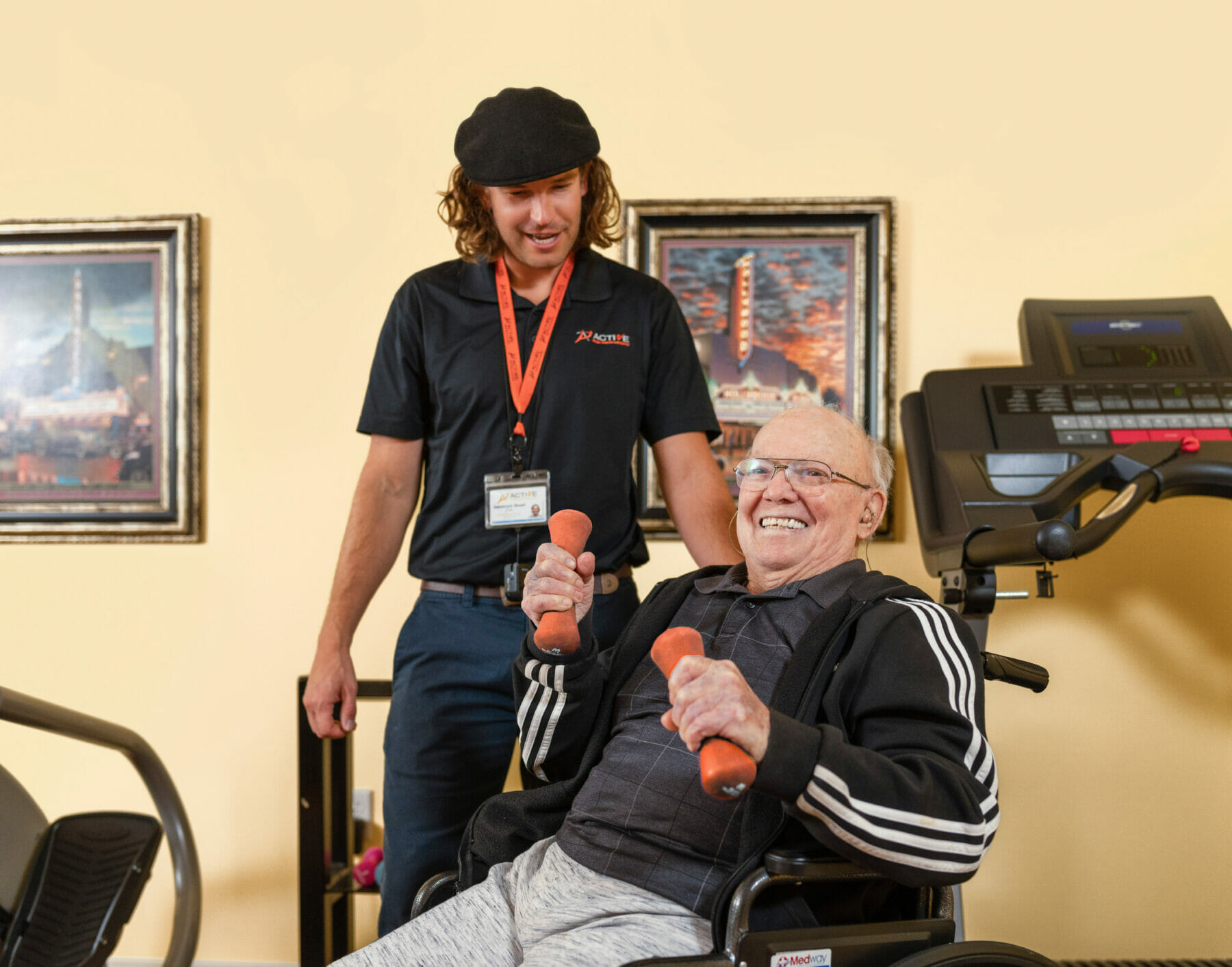
Home health care is the solution when you face health challenges but wish to remain as independent and mobile as possible.
Active Home Health & Hospice provides a great variety of medical services in the comfort of your home, including occupational therapy. Let’s dive into this specific form of treatment and how it differs from our other services, such as skilled nursing care and physical therapy.
What is Occupational Therapy?
Occupational therapy, also known as OT or home occupational therapy, is about helping patients perform daily activities they can no longer do on their own. Occupational therapists work by helping you complete tasks directly or making adjustments to the tasks or your environment. Therapists also help you to improve your skills in managing daily activities, such as dressing, bathing, personal hygiene, eating, and more. They also focus on improving the safety and accessibility of your home environment by recommending and teaching you about adaptive equipment and strengthening fine motor skills needed for daily living.
Active’s occupational therapists can provide you with a range of motion exercises, help assess and manage fall risk, and educate you and your loved ones on safety. Whether you wish to regain independence after surgery or an injury or need to build specific skills and strength for daily activities, occupational therapists are here to help.
OT differs from other home health care services because it focuses on daily living tasks and aims to help you recover and stay independent for as long as possible.
Health Care from Home: How Occupational Therapy Can Help You
Not sure what type of care you need? We offer a wide range of home health services that can be paired with occupational therapy for optimal care.
Occupational Therapy can help patients and caregivers in many different cases and circumstances, such as:
- Arthritis
- Bone and joint issues
- Cerebral palsy
- COPD
- Dementia and Alzheimer’s
- Diabetes
- Heart failure
- Mental health conditions
- Multiple sclerosis
- Parkinson’s disease
- Recovery from surgery or injury
- Stroke
How Occupational Therapy Helps with Recovery
After a significant fall, injury, or surgery, patients often need to find different ways to take care of themselves and often rely on support to get things done. Occupational therapists can support patients in getting in and out of the shower, up and down stairs, dressed and undressed, and other daily tasks. OT can also recommend and obtain special tools and equipment to make things easier during recovery, such as shower chairs, transport or wheelchair, bathroom rails, and other adaptive devices.
How Occupational Therapy Helps with Mental and Cognitive Health Conditions
Occupational therapists can help patients live healthier lives by strengthening self-awareness skills, helping simplify daily tasks, providing sensory stimulation, and improving memory strategies. Therapists can also work with caregivers to increase home safety and provide tips to help ease patient agitation and confusion.
How Occupational Therapy Helps with Diabetes
Occupational therapists can support you in changing your daily routines that will better help manage your disease, including blood sugar monitoring, exercise, meal planning, limb care, and more. They can also provide adaptive suggestions that help with vision deterioration, sensory or motor loss and more that may come with diabetes.
Help to Live Your Best Life
As you or a loved one ages or encounters injury or sickness that makes daily living tasks difficult and overwhelming, get the help you need from an at-home occupational therapist.
Do you qualify for home health care? Do you need help achieving daily tasks? Our occupational therapy services will improve your quality of life and help you maintain your independence so you can live your best life.
To speak with one of our knowledgeable representatives directly, contact Active Home Health, Hospice, & Personal Care today for a trustworthy home health care provider.


